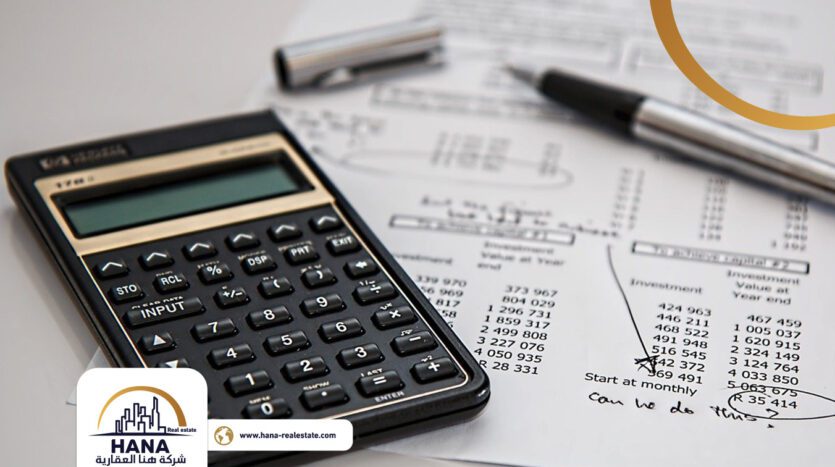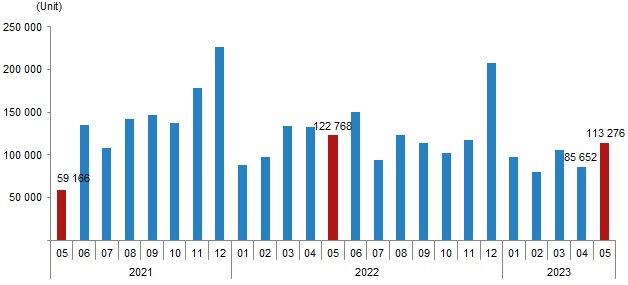Taxes are one of the important topics on which questions revolve from foreigners who come to own real estate in Turkey, which are lower in Turkey than in other countries. The government has striven to reduce taxes and provide facilities to foreigners to encourage foreign investment, thus equating foreigners with the Turkish citizen in terms of the tax cost of real estate. Our article today is dedicated to talking about all the details of real estate taxes in Turkey with all the important issues associated with it.
What is the annual property tax?
It is the tax paid by everyone who owns a property in Turkey, whether a person or a company, Turkish or foreign, which is paid annually to the state departments concerned with collecting taxes in return for owning a property in any area within the state borders and benefiting from the services provided by the government in the real estate area.
What is the annual tax value for real estate in Turkey?
The value of the real estate registered in the title deed is defined in order to estimate the annual tax, which is calculated as a percentage of its value.
The annual tax value estimate for real estate in Turkey’s major cities differs from that in smaller cities, in addition to its difference between cities and rural areas.
Tax value for residential real estate:
The annual tax is estimated at 2 per thousand in large cities, while it is estimated at 1 per thousand in smaller cities.
Tax value for commercial real estate:
The value of the tax varies if the real estate is of a commercial type. The annual tax value for commercial real estate of all kinds is calculated at a rate of 4 per thousand in major cities of Turkey and 2 per thousand in smaller cities.
When are annual property taxes paid?
The Turkish government sets dates for the payment of real estate taxes so that payment is made in installments, the first payment is paid at the end of the third month of the year, while the second payment is paid either at the end of the fifth month or at the end of the eleventh month of the same year. If payment is not made, the property owner is considered to be in default.
How are real estate taxes paid in Turkey?
Taxes are paid to the municipalities of major cities to which the real estate area belongs, where payment is made directly or by sending a bank transfer through the bank accounts allocated by the municipality or by sending it from any postal center close to the property, provided that writing the tax number of the property owner, and the value of the tax can also be paid via the Internet by following the instructions specified by the site that the concerned authorities have designated.
Who is exempted from annual real estate taxes in Turkey?
Every person who owns one property not exceeding an area of 200 square meters and does not have any other property of any second type different from the first property or does not have a partnership with another person in a property is exempted.
It also exempts persons of a certain social status such as widows, housewives, orphans, people with special needs, the disabled, relatives of war martyrs and fighters in addition to retirees, provided that they own only one residential property.
What happens if the annual property tax is not paid?
In the case of non-payment of taxes for persons who are not exempt from them, a fine of 1.4 percent of the value of the tax shall be imposed on them and added.
Real estate taxes in Turkey:
There are many real estate taxes that are imposed on everyone who buys a property within the borders of the Turkish state, other than the annual tax incurred on the property, and we will mention below all types of annual taxes and taxes that are paid once in the order that ensures the broadest clarification:
-Tax of confirmation a property purchase contract in Turkey:
It is the tax that is initially paid upon confirming the property purchase contract so that the contract is signed between the seller and the buyer at the notary, and this tax is calculated at 1% of the total property value.
This tax is considered one of the non-compulsory taxes, but it guarantees the right of the buyer, especially if a property that is still under construction is purchased so that it is agreed to confirm the purchase contract with a down payment to be paid to the construction company responsible for the construction project and the rest of the amount is paid in the form of payments to be agreed upon between the two parties and written in detail within the contract, and in this case the property buyer can ensure that the value of the property is fixed at the value that was agreed upon and at the same time proves his ownership of the property.
It is also necessary in the case that the property was purchased in installments from a construction company or directly from the property owner, and it was agreed to receive the title deed after the completion of the payment of the full installments, which guarantees the property buyer his ownership in addition to fixing the values of the installments and the specified period that was agreed upon.
The property purchase contract serves as a security document for the buyer.
-Real estate title deed tax:
The title deed of the property or what is known as the title deed of the property, whose extraction entails the payment of a tax of 4% of the total property value, and this value is paid equally between the seller and the buyer so that the seller pays 2% and the buyer 2% of the property value, but in some cases, the tax must be paid in full by the buyer by agreement between the two parties.
The title deed tax is one of the obligatory taxes for the extraction of the title deed.
-Residential complex expenses:
The residential complex is a group of residential buildings surrounded by a wall. Within the complex, there are several service facilities common to all residents of the complex. There is also a department responsible for organizing the complex and carrying out maintenance and development operations for various facilities, in addition to maintenance services for the building and apartments within it. It is responsible for the cleanliness of the complex and its various facilities as well.
The complexes also have protection systems and alarms in addition to emergency alarms and cameras distributed throughout the complex. There are also guardsmen responsible for protecting the complex from any possible danger. They also supervise the entry and exit of people to and from inside the complex.
These services entail taxes paid by the residents of the complex in return for their benefit from all its services, so that the payment is made on a monthly basis to the management of the complex. These taxes are called the monthly returns of the housing complexes, which are distributed by the administration as follows:
-50% of the proceeds are allocated to the staff working within the complex.
-25% of the proceeds are allocated to energy resources
-25% of the proceeds go to facility maintenance
-A fine is imposed on anyone who is late in paying the tax, and the fine is calculated on each day of delay, so that its value is 5% of the tax value for the whole month.
Residential complex taxes are mandatory taxes imposed on residents within it.
-Value added tax on real estate:
The value added tax on owning a property in Turkey ranges between 1% to 18% of the total property value. The value of this tax is determined according to the property specifications, such as the area in which the property is located, the city to which the property area belongs, the property area, the number of rooms in the case of residential properties, The design of the property and its degree of modernity, the services available within the property, the services available in the area surrounding the property and many other specifications that control the value of the tax.
The value of the tax is 18% in the case of luxury real estate located near city centers or in tourist areas or active vital areas, it also reaches this value in the case of commercial real estate and real estate with large areas of more than 150 square meters. As for the rest of the real estate, it is mostly 1% of the total property value There are some cases in which the value added tax is exempted or the construction companies pay it.
The added tax is a mandatory tax that is paid only once:
Cases in which there is an exemption from value added tax :
-A foreign investor who buys a property in Turkey is exempted from VAT if he is not residing in Turkey.
-The foreigner is also exempted if he does not own any residence in Turkey, a partnership in a residence, a partnership in a factory or a company.
-He is also exempted if he does not own a real estate of a commercial type such as a commercial store or a commercial office.
-In the case that a foreigner or Turkish purchaser of the property does not reside in Turkey for a period exceeding six months before purchasing the property.
-The property buyer is exempted if he does not have any valid residence in Turkey.
-Those who do not have a registered address within Turkey are also exempted.
The law of exemption is considered a new update to the laws of owning real estate in Turkey and includes new real estate only and does not apply in the case of old real estate.
It also includes residential real estate such as apartments of various shapes, villas, offices and business real estate such as companies, while other real estate such as residential and agricultural lands are not exempted from tax. It is also required for the exemption to have a bank transfer proving payment from outside Turkey or a customs declaration in the event that the amount is transferred inside Turkey, and the value of the property in this case is paid in foreign currency.
It is also required for the exemption not to sell the property before three years have passed since the date of its purchase in accordance with the new amendments to the laws.
Decisions to exempt from added tax are among the facilities provided by the Turkish government to foreign investors to encourage real estate investment in Turkey.
Fees for obtaining a real estate appraisal document:
The real estate appraisal document is one of the documents necessary to transfer the ownership of the property from the seller to the buyer, as it includes the real market value of the property in proportion to its specifications in terms of space, services and location in addition to the services available in the area in which the property is located.
The price of the property is determined in proportion to its value within the real estate market in Turkey.
The real estate appraisal document is considered one of the protection documents for real estate investors or for those who buy within Turkey from the foreigners, which protects them from any exaggeration in the value of the property beyond the value due, which was imposed by the Turkish government to create a safe atmosphere for real estate investment away from any fraud caused by lack of experience or lack of Sufficient ownership information related to the real estate market in Turkey or updates of laws related to it that may expose them to real estate fraud.
The application for evaluation is submitted to a real estate company or a real estate expert who has a license by the government, or the evaluation is done by a real estate expert working for the Turkish government.
Obtaining the document entails paying fees determined as a percentage of the total property value to be estimated by the appraiser. The real estate appraisal tax is a mandatory tax to obtain the document in order to transfer the ownership of the property and is paid only once, but the validity of the document is determined for three months.
In the case that the purchase process of the sale of the property is canceled by the buyer, the owner of the main property can benefit from the evaluation document in a second sale of the same property.
-Earthquake insurance policy issuance fees:
Some areas of Turkey are exposed to earthquakes of varying strength, which may result in damage to buildings of all kinds, so the Turkish government imposed on property owners of all kinds to pay an earthquake insurance tax, the value of insurance is calculated according to the area of the property and the age of the building and is renewed annually, and the insurance also includes damages of earthquakes and the disasters left behind by the earthquake such as demolitions, fires and floods.
Its purpose is to ensure that the property owner compensates part of his loss in the case of an earthquake or one of the damages resulting from it.
The tax is paid to an insurance company. In some cases, construction companies or real estate companies are responsible for paying the insurance tax.
-Taxes fees for translation and attestation of papers:
The process of buying a property within Turkey by foreigners requires a set of compulsory papers and documents such as a passport, for example, and it is required to accept these papers that they be translated through a sworn translator in Turkey, and this entails translation fees. It is also necessary to attest these papers and documents at the notary public at the Notre office within Turkey, and this also requires payment of certification fees.
Taxes for translation and attestation fees are mandatory taxes for the transfer of ownership of the property, which are paid only once.
-Municipal tax:
The municipalities in Turkey collect taxes from the owners of real estate within their administration and the beneficiaries of the many services provided by the municipality, so that these fees are paid annually and the rate of this tax reaches 0.03% of the total property value.
Municipal taxes are mandatory taxes that are paid only once a year.
-Real estate brokerage taxes:
It means the commission paid to the real estate agent or the real estate company in the event that the buyer of the property in Turkey chooses to use one in order to help him choose the right property.
This tax varies according to the services provided by the company, as some companies undertake the task of preparing the complete papers and documents required for the transfer of ownership in addition to their translation and certification. The value of this tax ranges between 1 to 2% of the total property value.
It is one of the mandatory taxes that are paid once in the case that a real estate company or agent is used within Turkey.
– Power of attorney tax:
In the case that the real estate buyer is outside Turkey and has appointed a lawyer to carry out the entire task, in this case, he must pay the Warranty fee. It is one of the mandatory taxes that are paid once in the case of a power of attorney.
-Property registration tax:
To register a property within the Land Registry Directorate, a tax of 3% of the total property value is required, which is a one-time mandatory tax.
These were all taxes to be paid to foreigners coming to own real estate within Turkey, in addition to the annual tax that was mentioned at the beginning. The foreigner differs from the Turkish citizen in the tax cost of his presence outside Turkey, such as translation fees and certification fees only.
Related articles:
Turkish citizenship and its importance for every investor
How to obtain a tourist residence in Turkey
Important terms in the Turkish real estate market
Five important questions before buying a property in Turkey
Number of investors who obtained Turkish citizenship 2022
Turkish passport costs
What is the difference between real estate residence permit and Turkish citizenship
Real estate for sale in Turkey suits all tastes
Real estate residency renewal
Why is real estate prices is cheap in Turkey??
Villas for sale on the Bosphorus
The cheapest apartments in Turkey






